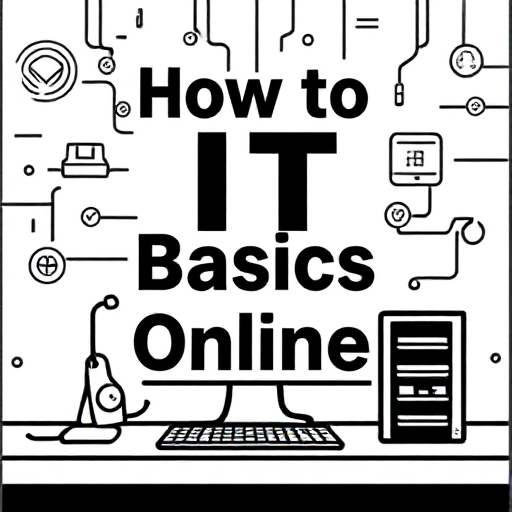
In today’s rapidly evolving digital age, technology has become an integral part of every industry. From healthcare to finance, education to entertainment, technology underpins the systems and tools we rely on daily. As a result, acquiring tech skills has transitioned from being a niche interest to a vital necessity. One of the most effective ways to gain these skills is through online learning. This article explores the numerous benefits of learning tech skills online and why it is a smart choice for anyone looking to advance their career or personal development.
1. Accessibility and Flexibility
Online learning platforms make tech education accessible to people across the globe. Regardless of your location, as long as you have an internet connection, you can access a wealth of courses, tutorials, and resources. Furthermore, the flexibility of online learning allows you to study at your own pace. This is particularly beneficial for working professionals, students, and parents who need to balance learning with other responsibilities.
2. Cost-Effectiveness
Traditional classroom-based education can be expensive, factoring in tuition, transportation, and accommodation costs. Online learning offers a more affordable alternative. Many platforms provide free courses or charge significantly lower fees compared to traditional institutions. Additionally, learners can save money by avoiding costs associated with commuting and physical study materials.
3. Diverse Range of Courses
The variety of tech skills available online is staggering. Whether you want to learn coding, data analysis, cybersecurity, artificial intelligence, or cloud computing, there is a course tailored to your needs. Online platforms cater to different skill levels, offering beginner-friendly content as well as advanced topics for seasoned professionals.
4. Self-Paced Learning
One of the standout advantages of online learning is the ability to learn at your own speed. Unlike traditional classrooms, where the pace is dictated by the instructor, online courses allow you to revisit lessons, pause for reflection, or skip sections you’re already familiar with. This adaptability ensures a personalized learning experience that caters to individual needs.
5. Access to Industry Experts
Many online tech courses are taught by industry professionals and experts who bring real-world experience to the table. Platforms like Coursera, Udemy, and LinkedIn Learning collaborate with reputable institutions and organizations, ensuring that learners receive high-quality instruction from knowledgeable sources. This exposure can provide insights into industry trends and practical applications of the skills being taught.
6. Interactive and Engaging Content
Modern online learning platforms utilize engaging teaching methods to enhance the learning experience. From video tutorials and live coding sessions to interactive quizzes and virtual labs, learners are encouraged to actively participate. Many platforms also include forums or discussion boards where students can collaborate, share ideas, and solve problems together.
7. Building a Portfolio
Tech skills often require practical demonstration. Online courses frequently include projects and assignments that allow learners to build a portfolio showcasing their abilities. For example, a web development course might require students to create a functional website, while a data analysis course could involve interpreting and visualizing datasets. These portfolios are invaluable when applying for jobs or freelance opportunities.
8. Networking Opportunities
Online learning communities often bring together people from diverse backgrounds and industries. Participating in forums, group projects, or live sessions can help you expand your professional network. These connections may lead to collaborations, mentorship opportunities, or even job offers.
9. Staying Updated with Industry Trends
Technology evolves rapidly, and staying relevant requires continuous learning. Online platforms are quick to update their content to reflect the latest tools, techniques, and trends. This ensures that learners remain up-to-date with industry standards and are well-prepared for the demands of the job market.
10. Certifications and Career Advancement
Many online courses provide certificates upon completion, which can be a valuable addition to your resume. Certifications from reputable platforms and institutions signal to employers that you have acquired specialized knowledge and are committed to professional development. This can improve your employability and open doors to promotions or new career opportunities.
11. Enhancing Problem-Solving and Creativity
Learning tech skills online often involves tackling real-world problems through hands-on projects. This approach not only enhances problem-solving abilities but also fosters creativity. For example, designing an app or developing a machine learning model requires innovative thinking and a practical mindset, which are highly valued in the tech industry.
12. Encouraging Lifelong Learning
Online learning cultivates a culture of continuous education. With technology constantly evolving, the skills you learn today might need to be updated tomorrow. Online platforms make it easy to revisit topics, explore new areas, and stay curious, fostering a habit of lifelong learning.
The benefits of learning tech skills online are numerous and compelling. From accessibility and cost-effectiveness to staying current with industry trends, online learning offers unparalleled advantages. Whether you’re a student, professional, or enthusiast, embracing online tech education can empower you to achieve your goals and thrive in the digital age. As technology continues to shape our world, investing in tech skills through online learning is not just a choice—it’s a necessity.






